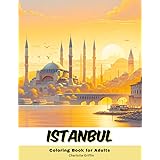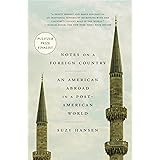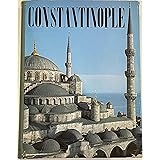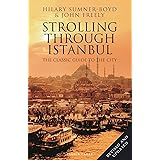Mustafa Kemal Atatürk, founder of the Republic of Turkey (1923)
In the 20th century, three empires disappeared.
The Russian Tsardom in 1907, the Chinese Empire in 1911 and the Ottoman Empire in 1918. Turkey emerged from the Ottoman Empire as a republic, while the Union of Soviet Socialist Republics emerged from the Russian Tsardom and the People’s Republic of China emerged from the Chinese Empire. In the post-World War II period, the Republic of Turkey turned towards multi-party democratic life, while the regimes of the Soviet Union and the People’s Republic of China remained unchanged, but the Republic of Taiwan China was established on the island of Taiwan and adopted a democratic regime.
When we examine the establishment and development of the Republic of China in Taiwan, the Republic of Azerbaijan and the Republic of Turkey, the results we reach will be interesting.
The Republic of China, the earliest of these, was founded in 1911 by Sun Yat Sen on the Chinese mainland, and later, as a result of the civil war between the communists and the republicans, under the leadership of Chiang Kai Shek, who took over the leadership from Sun Yat Sen, the Republic of China defected to the island of Taiwan and continued to enrich its democratic structure in multi-party life. The Republic of China in Taiwan has actually developed itself as a combination of Japanese, Chinese and American cultures and is far superior to the People’s Republic of China in terms of science and technology.
The Republic of Azerbaijan, which was founded in 1918, was occupied by the Soviet communists shortly after its establishment and was transformed into the Azerbaijan People’s Republic.
In 1991, the Republic of Azerbaijan was revived. The cadres, who were the leaders of the idea of the Republic, ensured intellectual and social development in a period of 70 years from the mid-19th century and created a solid foundation for the Republic, but then they defected to the Republic of Turkey as a result of the pressures of the Soviet regime under Stalin. In the process of the establishment of Turkey as a republic, the founding cadres of the Republic of Azerbaijan shared their ideas and experiences with Turkey and contributed immensely and were actively involved in Turkish political life.
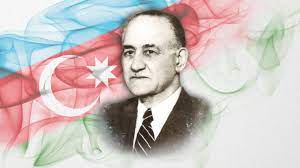
Mehmet Emin Resulzade, the founder of the Republic of Azerbaijan (1918)
The multi-party democratic life that began in 1946 in Turkey, which was positioned in the western camp at the Yalta conference in the aftermath of the Second World War, was constantly interrupted by coups organized by the United States. The potential of the Republic of Turkey, with its imperial accumulation, to be effective in its region and to change the intercontinental balances by putting this accumulation into use was constantly postponed and prevented by these coups.
As a result of the Yalta conference, the Soviet Union began to increase the pressure it exerted on the countries under its rule. As a result, following the fall of the Berlin Wall in 1989, Azerbaijan became independent as a republic in 1991.
The Republic of China in Taiwan has always been at the top of the economic development and democracy indices.
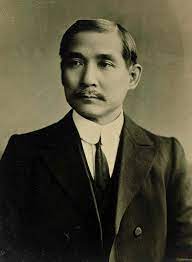
Sun Yat Sen, founder of the Republic of China (1911)
While the United States, the leader of the Western camp, is constantly restraining the democratic progress of the Republic of Turkey with coups due to Turkey’s location in the same region with Russia, on the other hand, Taiwan, which is located in the same region with the People’s Republic of China, is constantly advancing the democratic life in the Republic of China to the most advanced points, and the people in the People’s Republic of China are affected by democratic freedoms and economic wealth, and creating instability in China is constantly at the top of the agenda.
Ranking of Countries by Quality of Democracy
- 26 . Taiwan. Democracy Works
- 137. Turkey. Moderate Autocracy
- 157. Azerbaijan. Rigid Autocracy
Source: Ranking of Countries by Quality of Democracy
Today, when the rankings of the three republics in the democracy league are monitored, the following picture emerges. According to the definitions in the table, the Republic of Taiwan is a working democracy, the Republic of Turkey is a moderate autocracy and the Republic of Azerbaijan is a strict autocracy.
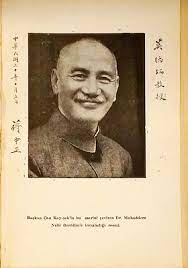
Chiang Kai-shek, who led the Republic of China to the island of Taiwan in 1949
In the first quarter of the 20th century, Turkey, which crowned its struggle for independence with the Republic, moved away from the democratic dimension of the republic in the first quarter of the 21st century. The Republic of Azerbaijan, on the other hand, has not turned its struggle for independence, which it won towards the end of the 20th century, towards democracy. The Republic of Taiwan, on the other hand, has increasingly enriched its democracy despite the threats and security risks posed by the People’s Republic of China.
As a result of the 1997 agreement, Hong Kong, which broke away from the UK and moved towards integration with the People’s Republic of China after 50 years of transition, has fallen to 107th place in the League of Democracies and is now classified as a hybrid regime. Aware of this reality, Taiwan is resisting a similar unification. Taiwan’s official ideology is to transform the regime of the People’s Republic of China in favor of democracy.
As a result, the People’s Republic of China and the Republic of China Taiwan are completely opposite to each other in terms of their democratic orientation, while the Republic of Turkey and the Republic of Azerbaijan have become more and more similar to each other in their non-democratic orientation.
Since the mid-19th century, Turkey has been considered a European country, but its democratic development has been constantly hindered by the faraway continental state of the United States. The democratic development of the Republic of Azerbaijan is similarly hampered by the Soviet Union and then the Russian Republic. The democratic development of the Republic of China in Taiwan in the Asia Pacific has been consistently supported by the United States of America, a faraway continental state, as an adversary to the People’s Republic of China.
Three Hegemons and Three Republics
It seems that among the three hegemons of the UN5 powers, the US, Turkey, Russia, Azerbaijan and the People’s Republic of China see the right to determine the fate of Taiwan as their own.
This is a sad state of affairs that necessitates intensive work and energy to be spent on solution scenarios.






